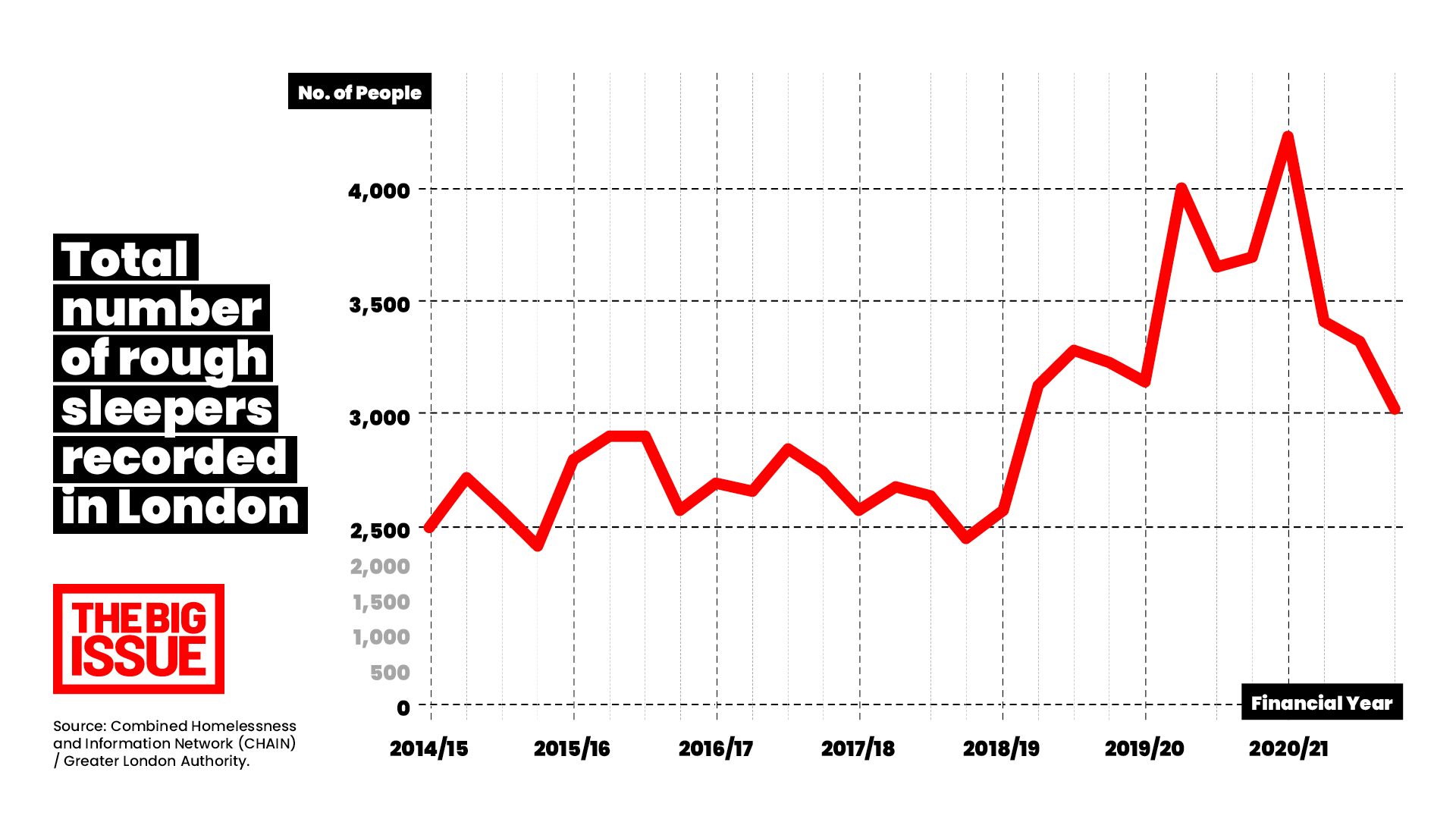The number of people living long-term on the streets in London plummeted by a quarter during the latest Covid-19 lockdown as the Everyone In scheme continued to have an effect on rough sleeping.
The latest Combined Homelessness and Information Network (CHAIN) figures found 3,002 people sleeping rough in London in the three-month period – down 10 per cent on the 3,307 recorded between October and December 2020 and a 19 per cent fall from the first quarter of 2020. More than half were sleeping rough for the first time and the majority spent just one night on the streets.
But outreach teams found just 316 people remained living on the streets long-term in the English capital between January and March this year – down 23 per cent on the previous three months – following efforts to protect rough sleepers from the Covid-19 pandemic.
An economic downturn is likely to mean more people are forced to sleep on the streets in the coming months and years
Communities secretary Robert Jenrick called for local authorities to “redouble efforts” to move rough sleepers into hotels and other emergency accommodation through the Everyone In scheme as Covid-19 cases rose at the start of the year.
But the long-term focus of the incoming London Mayor and central government must be on preventing people hit by the economic impact of the pandemic from falling into homelessness, warned Lorrita Johnson, The Salvation Army’s director of homelessness services.
“Although real progress was made as part of the ‘Everyone In’ initiative and other schemes to help prevent and relieve homelessness during the pandemic, it is vital we keep up the momentum and ensure long-term investment for homelessness services,” said Johnson.










